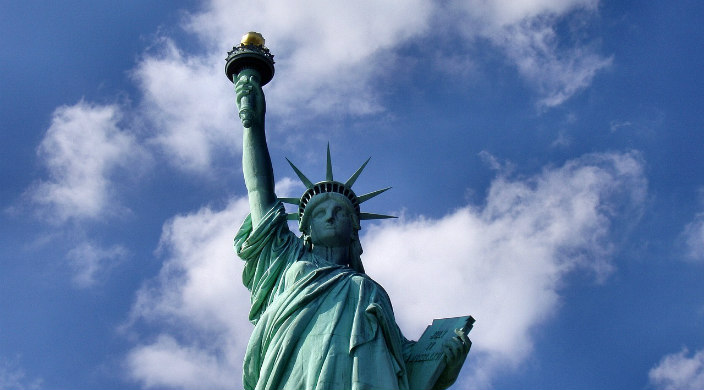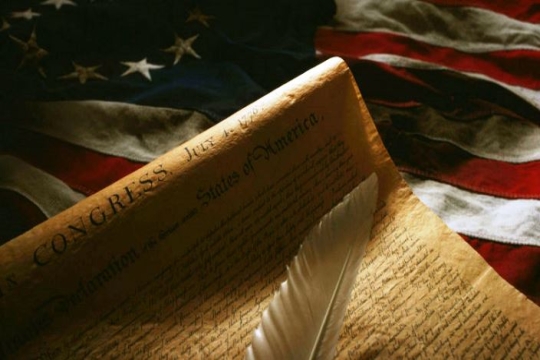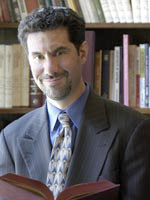
Like parents of most American teenagers these day, I’ve been listening to the soundtrack of Hamilton a lot. I’m not an expert on this musical, but I know it well enough to embarrass my kids whenever I try to sing it.
The other night, I sat down with my daughter to write a parody based on one of its songs, “You’ll Be Back,” for the bar mitzvah of a family friend. Back in April, two students at the Reconstructionist Rabbinical College (in Philadelphia, of course) made their Hamilton-themed Haggadah available just in time for Passover. And perhaps it’s got nothing to do with the Hamilton sensation, but the show that the director chose for my daughter’s summer musical theater camp is 1776, which focuses on the days leading up to the signing of The Declaration of Independence.
With so many “revolutionary” musicals to enjoy, I’ve been musing about the value of independence they dramatically explore. Judaism certainly has things to say about independence.
From Exodus to Deuteronomy, Torah tells us about the quest for national independence, the story of a people seeking freedom from slavery, a home of their own, and the freedom to formulate its own laws.
Maimonides, writing in the Middle Ages, stresses the value of financial independence when he famously asserted that the highest form of charity is to make someone self-sufficient, no longer dependent on the generosity of others. In 1948,
The State of Israel issued its own Declaration of Independence. Like its American predecessor, it serves as an aspirational document, a statement of purpose and commitment to values that form the core of a national identity.
Yet Judaism also emphasizes the notion that being dependent is part of our human condition.
Torah repeatedly admonishes its reader/listener to practice kindness, generosity, and compassion towards any and all “dependents” in our lives, be they children, parents, employees, the poor, the hungry, or the stranger. The Talmud teaches that “everyone is responsible for one another”. Mutual reliance and accountability bind us together in a moral compact. The “I/it, I/Thou” concept of the modern Jewish philosopher Martin Buber argues that everything is relational and every part of life is rooted in relationships.
Buber’s contemporary, Rabbi Abraham Joshua Heschel, didn’t title one of his books The Insecurity of Freedom for nothing. Freedom, as has often been noted, involves both “freedom from” and “freedom to.” It is entirely possible that one could be forced into doing a good thing and freely chose to make a terrible mistake. Judaism strives to balance dependence and independence, just as each of us endeavors to do in our own lives. The independence we cherish is dependent on the dedication of others.
As we approach Independence Day and reflect on the meaning of what Jefferson defined as “life, liberty and the pursuit of happiness,” let us consider the rights and responsibilities that come from the blessing of living in a democracy where being dependent and independent are profoundly intertwined.
Related Posts

Practicing Democracy


